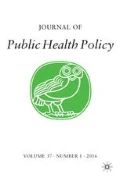Abstract
Three decades ago, the world's ministries of health declared primary health care—the delivery of basic preventive and curative services—a top priority. Since then, however, the world's poorest countries have not met most primary health care goals. Twenty-six years after the Declaration of Alma Ata, we are said to be living in a time of “limited resources”, a phrase that construes various health interventions as competing priorities. As HIV has become the leading infectious cause of adult death in much of the world, it is difficult to argue that AIDS prevention and care are not ranking priorities for primary health care, yet precisely such arguments have held sway among international health policy makers. We present new information emerging from the scale-up of an established and integrated AIDS prevention-and-care program, based initially in a squatter settlement in central Haiti, to a second site in rural Haiti. The program includes robust prevention efforts as well as community-based therapy for advanced AIDS; three related components—women's health and active case finding and therapy for tuberculosis and sexually transmitted infections—were central to this effort. We tracked changes in key indices over the 14 months following the introduction of these services to a public clinic in central Haiti. We found that integrated AIDS prevention and care, including the use of antiretroviral agents, to be feasible in resource-poor settings and that such efforts may have favorable and readily measured impact on a number of primary health care goals, including vaccination, family planning, tuberculosis case finding and cure, and health promotion. Other collateral benefits, though less readily measured, include improved staff morale and enhanced confidence in public health and medicine. We conclude that improving AIDS prevention and treatment can help to reinvigorate flagging efforts to promote universal primary health care.
Similar content being viewed by others
Additional information
These members of the Partners In Health/Zanmi Lasante team working in Haiti describe how they learned that integrated AIDS prevention and care, including the use of antiretroviral agents was feasible in resource-poor settings and may have a favorable impact on primary health care—including vaccination, family planning, tuberculosis case finding and cure, and health promotion.
Rights and permissions
About this article
Cite this article
Walton, D., Farmer, P., Lambert, W. et al. Integrated HIV Prevention and Care Strengthens Primary Health Care: Lessons from Rural Haiti. J Public Health Pol 25, 137–158 (2004). https://doi.org/10.1057/palgrave.jphp.3190013
Published:
Issue Date:
DOI: https://doi.org/10.1057/palgrave.jphp.3190013




